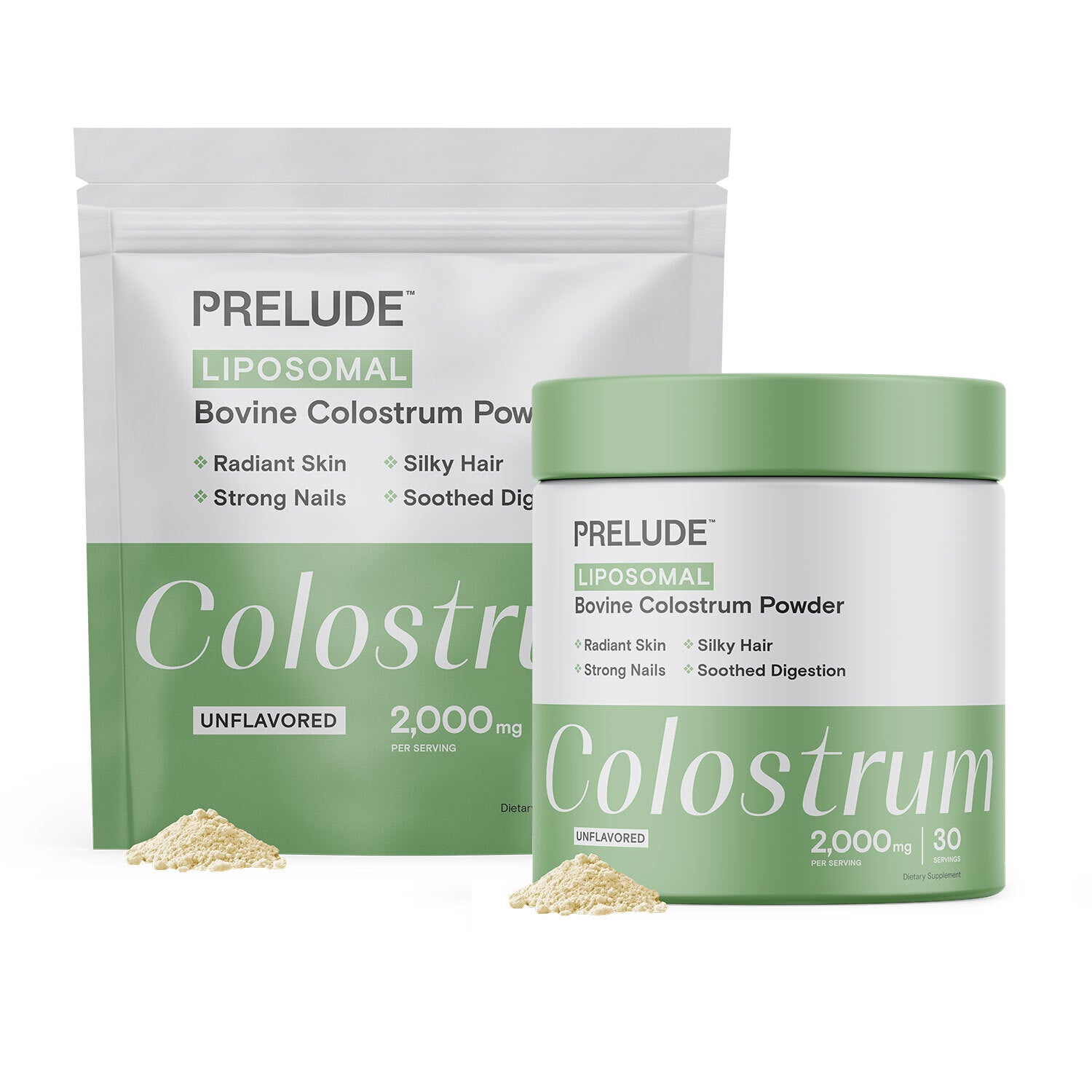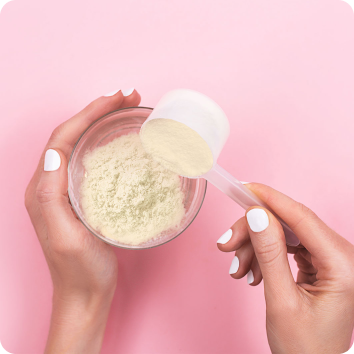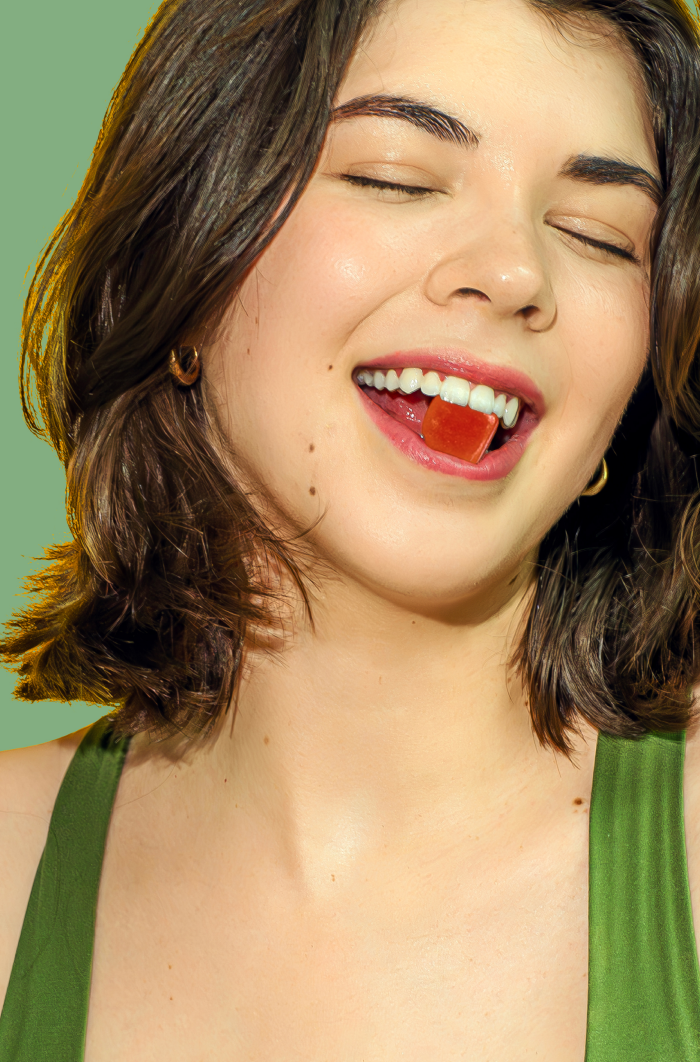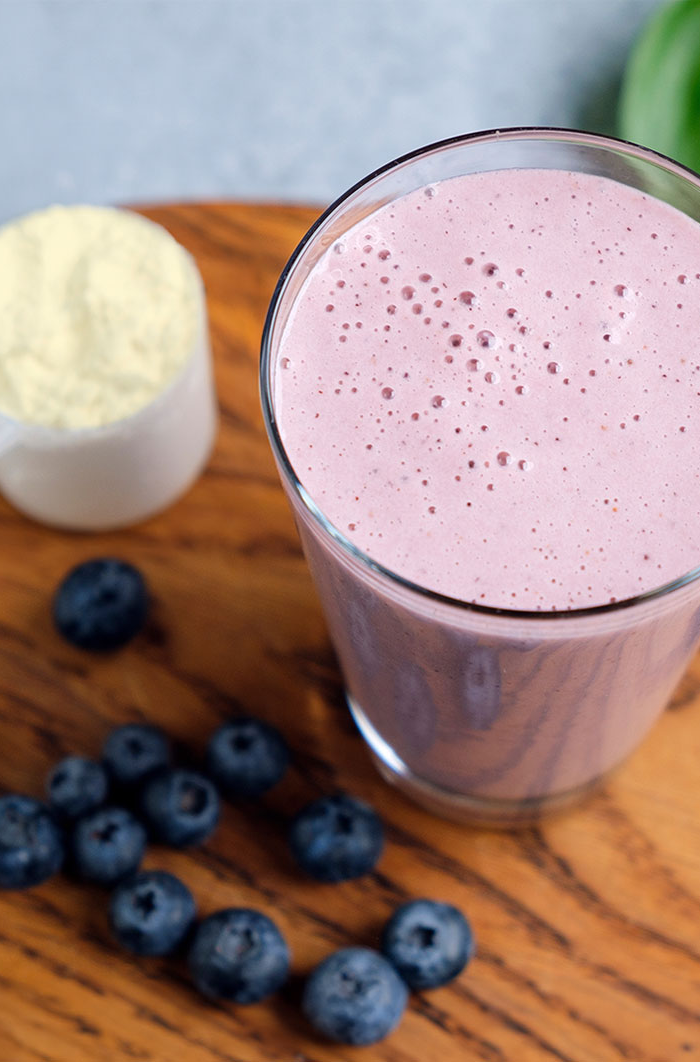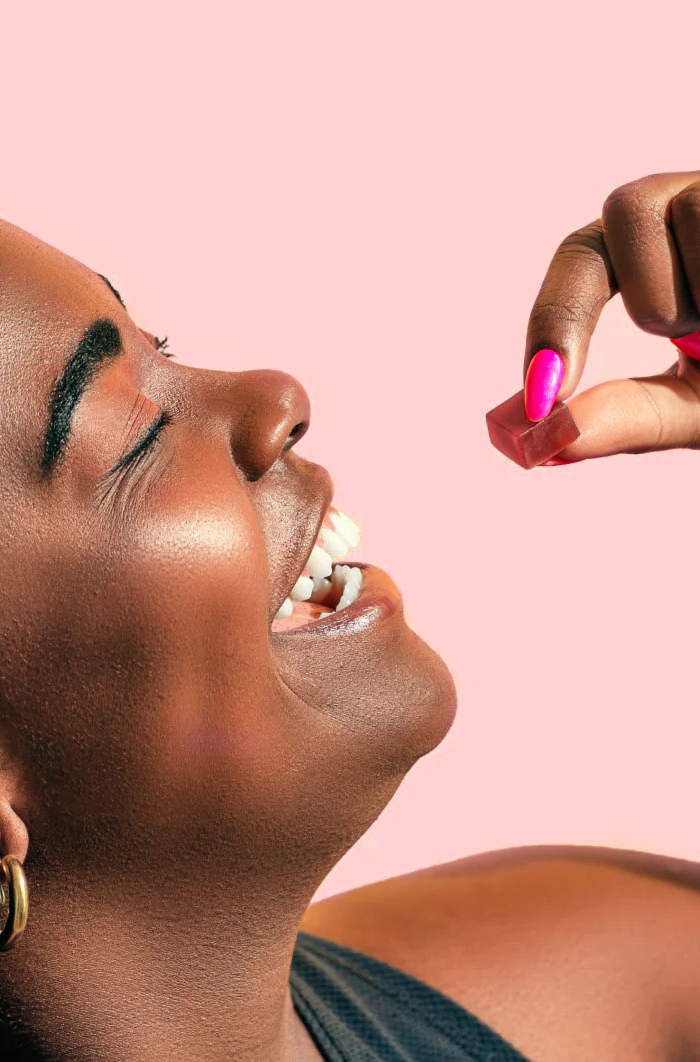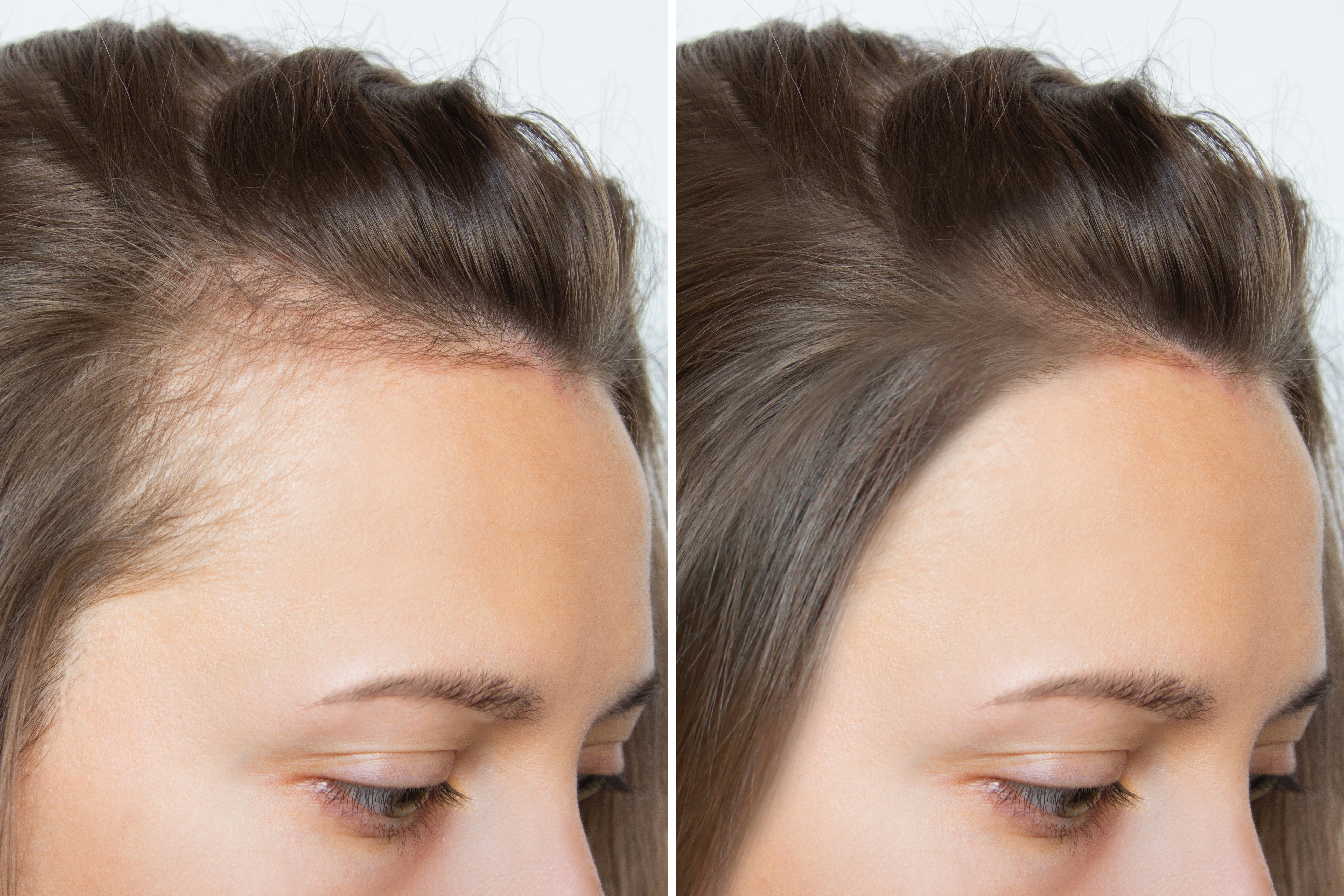
Does Colostrum Help With Hair Growth?
Are you looking for a natural way to boost your hair growth and achieve healthier, stronger locks? If so, you might have heard about colostrum for hair growth and its potential benefits for your hair. In this blog post, we'll explore what colostrum is and how it can help improve your hair health. Let's dive in!
What is colostrum?
Colostrum is the first form of milk produced by mammals, including cows (referred to as bovine colostrum) and humans, immediately after giving birth. It's packed with nutrients, antibodies, and growth factors that help newborns build a strong immune system. But did you know that these same properties can also benefit your hair? Let's look at the different ways colostrum can assist with hair growth.
5 ways colostrum assists with hair growth
1. Rich in Growth Factors
Colostrum contains various growth factors like Insulin-like Growth Factor 1 (IGF-1) and Epidermal Growth Factor (EGF). These growth factors play a crucial role in cell regeneration and repair. When applied to your scalp or taken as a colostrum supplement, they can stimulate the hair follicles, encouraging new hair growth and helping existing hair become thicker and stronger.
2. Packed with Proteins and Amino Acids
Proteins and amino acids are the building blocks of your hair. Bovine colostrum is rich in these essential nutrients, which help in repairing damaged hair and promoting new growth. By providing your hair with the necessary proteins, colostrum can improve the overall health and appearance of your hair.
3. Boosts Immune System
A healthy immune system is vital for maintaining healthy hair. Colostrum benefits include the presence of antibodies and immune-boosting compounds that help protect your body from infections and diseases. A strong immune system can prevent hair loss caused by autoimmune conditions and keep your scalp healthy.
4. Anti-Inflammatory Properties
Inflammation of the scalp can lead to hair loss and other hair problems. Colostrum has natural anti-inflammatory properties that can soothe an irritated scalp, reduce dandruff, and create a healthy environment for hair growth.
5. Improves Gut Health
You might wonder how gut health relates to hair growth. Well, a healthy gut helps in better nutrient absorption, which is essential for hair health. Colostrum aids in repairing the gut lining and promoting good bacteria, ensuring that your body effectively absorbs the vitamins and minerals needed for strong and healthy hair.
How quickly can colostrum help with hair growth?
Typically, you may start noticing improvements in hair texture and strength within a few weeks of regular use. However, significant hair growth usually takes a few months. Consistency is key here. Whether you're taking colostrum supplements or applying it topically, make sure to use it regularly as directed to achieve the best results.
When you start using colostrum for hair growth, it's important to have realistic expectations. Hair growth is a slow process, and results can vary from person to person based on factors like age, health, and the extent of hair damage or loss.
Can colostrum reduce gray hairs?
Yes, bovine colostrum can reduce gray hairs. Although it may not reverse gray hair completely, it contributes to healthier hair that retains its natural color for longer.
Gray hair is a natural part of aging, but many people seek ways to delay or reduce it. Colostrum benefits might help in this area due to its rich antioxidant content. Antioxidants combat oxidative stress, which is one of the factors that contribute to premature graying of hair.
Additionally, the growth factors and nutrients in colostrum can help in maintaining the health of your hair follicles, which may slow down the graying process. Is colostrum or collagen better for hair?
Is colostrum or collagen better for hair?
Colostrum is packed with growth factors, immune boosters, and nutrients that support overall hair health, stimulate new hair growth, and improve scalp conditions.
Collagen, however, is a structural protein that strengthens hair, enhances elasticity, and prevents breakage.
When it comes to hair health, both colostrum and collagen offer unique benefits, but the best choice depends on your specific hair needs.
If you're looking to boost new hair growth and tackle scalp issues, colostrum may be the better option. But if your goal is to fortify existing hair and reduce damage, collagen might be more suitable.
For the best results, you might consider combining both colostrum and collagen to support new growth and strengthen your current hair.
Other benefits of colostrum
Beyond hair health, colostrum offers several other health benefits for your overall well-being:
- Enhances Immune Function: colostrum is known for its immune-boosting properties. It contains antibodies that help fight off bacteria and viruses, reducing the risk of infections and illnesses.
- Improves Digestive Health: colostrum helps in healing the gut lining and promoting healthy digestion. It can be beneficial for people suffering from conditions like leaky gut syndrome and irritable bowel syndrome (IBS).
- Supports Muscle Growth and Recovery: the growth factors and proteins in bovine colostrum aid in muscle development and repair, making it a popular supplement among athletes and fitness enthusiasts.
- Promotes Healthy Skin: colostrum's nutrients and growth factors can improve skin elasticity, reduce wrinkles, and promote a youthful appearance.
- Aids in Weight Management: by improving metabolism and promoting lean muscle mass, colostrum benefits include assisting in maintaining a healthy weight.
How to take colostrum
If you're thinking about using colostrum to help with your gut health and reduce bloating, it's important to know how to take it the right way. Colostrum supplements come in different forms, like powders and gummies. Which one you choose depends on what you like and the specific directions for that product.
Here are some tips to help you get started:
Follow the Directions: Each colostrum supplement might have different instructions for how much to take. Always read and follow the directions on the label to make sure you're taking the right amount.
Start Slow: If you're new to colostrum supplements, it's smart to start with a smaller amount and slowly increase it. This helps your body get used to the supplement and lowers the chance of any side effects.
Take It on an Empty Stomach: To get the most out of colostrum, it's often best to take it when your stomach is empty. This means either 30 minutes before a meal or two hours after eating. This way, your body can absorb the nutrients better.
Consider Powder Form: If you want more control over how much you take, colostrum powder might be a good choice. You can mix it into water, smoothies, or other drinks. Just make sure to stir it well so it doesn't clump.
Be Consistent: To get the best results, take colostrum regularly as part of your daily routine. Remember, the benefits for your gut health might take some time to show, so keep using it consistently and be patient.
Key Takeaways
Colostrum offers a range of benefits that can improve your hair health and overall well-being. Its rich nutrient profile can stimulate hair growth, strengthen existing hair, and even delay the graying process. Whether you choose to take it orally or apply it topically, incorporating colostrum into your hair care routine might be the natural solution you've been searching for.
So, are you ready to give colostrum for hair growth a try and unlock the potential for healthier, stronger hair? See our colostrum supplements today.
References
- Mehra, R., Singh, R., Nayan, V., Buttar, H. S., Kumar, N., Kumar, S., ... & Kumar, H. (2021). Nutritional attributes of bovine colostrum components in human health and disease: A comprehensive review. Food Bioscience, 40, 100907.
- Playford, R. J., Macdonald, C. E., & Johnson, W. S. (2000). Colostrum and milk-derived peptide growth factors for the treatment of gastrointestinal disorders. The American Journal of Clinical Nutrition, 72(1), 5-14.
- Struff, W. G., & Sprotte, G. (2008). Bovine colostrum as a biologic in clinical medicine: A review–Part II. International journal of clinical pharmacology and therapeutics, 46(5), 211-225.
- Kelly, G. S. (2003). Bovine colostrums: a review of clinical uses. Alternative Medicine Review, 8(4).
- Danilenko, D. M., Ring, B. D., & Pierce, G. F. (1996). Growth factors and cytokines in hair follicle development and cycling: recent insights from animal models and the potentials for clinical therapy. Molecular medicine today, 2(11), 460-467.







